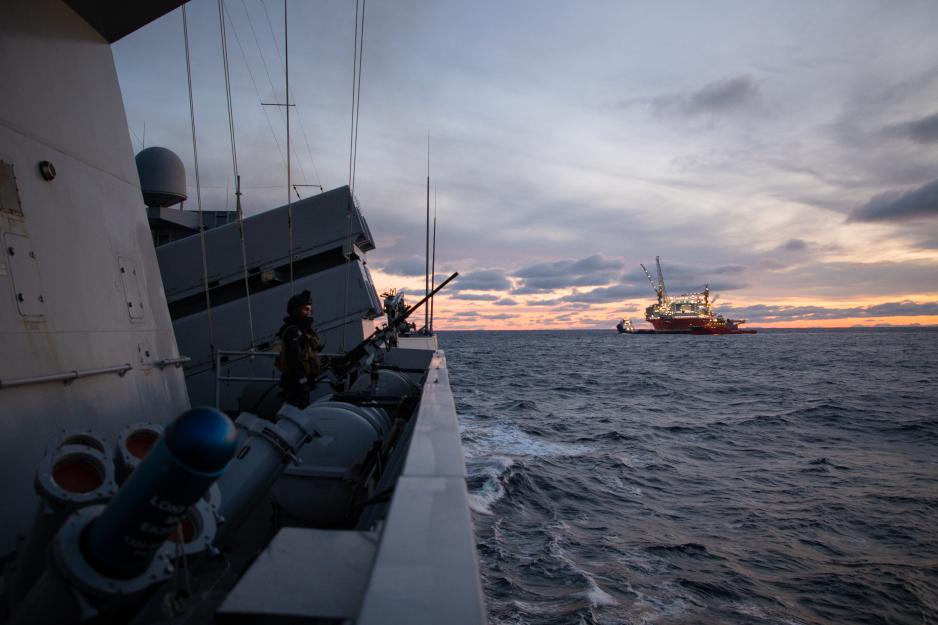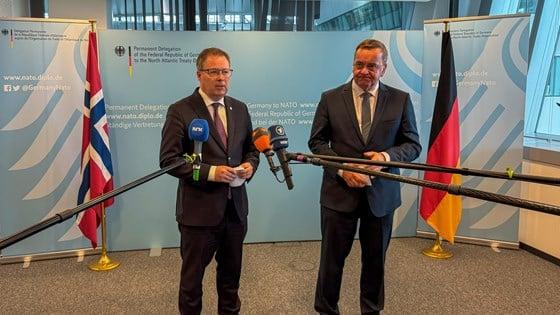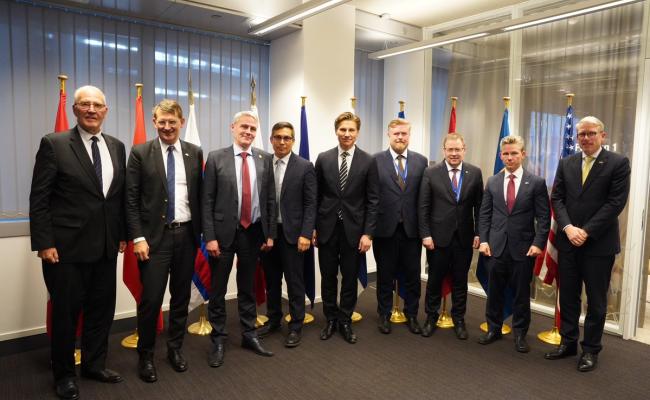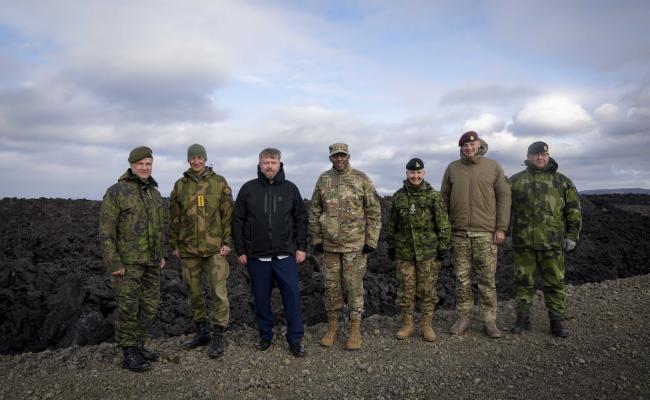Norway Proposes a NATO Hub for Securing Critical Undersea Infrastructure in the High North

Norway and Germany seek to reinforce NATO's efforts to protect critical undersea infrastructure. Here, the Goliat oil field in the Barents Sea is patrolled by the Norwegian frigate HNoMS Fridtjof Nansen. The neighboring field, the Snøhvit gas field, has a 143-kilometer-long pipeline to an LNG plant on Melkøya outside Hammerfest, Northern Norway. From there, gas is exported to Europe. (Photo: Ørjan Andreassen/the Norwegian Armed Forces)
On Thursday, Norway and Germany launched a joint initiative to strengthen NATO’s role in protecting critical undersea infrastructure. Norway offers to establish a hub for monitoring in the High North, while Germany wants to take responsibility for the Baltic Sea.
Last week, NATO ministers of defense gathered in Brussels to advance work on deterrence and defense.
At a bilateral meeting on Thursday, Norway and Germany’s ministers of defense signed a joint statement on a proposal to further strengthen the alliance’s role in protecting critical underwater infrastructure.
In May, NATO launched the Maritime Centre for Security of Critical Undersea Infrastructure (CUI). It is a networking and knowledge center dedicated to the security of undersea energy pipelines and cables that assists the Commander of NATO’s Allied Maritime Command.
What is now being proposed by Norway and Germany is the creation of regional CUI hubs for different maritime areas in NATO’s area of responsibility: the North Sea, the Atlantic Ocean, the Baltic Sea, the Mediterranean Sea, and the Black Sea. The idea is that these hubs can be provided by one or a group of allies.
“Norway is offering to implement a CUI Hub for the High North. Germany is willing and determined to take responsibility in the Baltic Sea,” states the Norwegian Ministry of Defense.
“The hubs would monitor underwater infrastructure and bring in regional expertise to improve situational awareness in the underwater domain. Personnel and capabilities of respective national authorities could be used to detect suspicious activities and deter potential adversaries,” the ministry elaborates.

The defense ministers of Norway and Germany, Bjørn Arild Gram and Boris Pistorius, advocate that NATO's new Maritime Centre for Security of Critical Undersea Infrastructure should be supplemented with regional hubs. (Photo: Lars Gjemble/the Norwegian Ministry of Defense)
Continued need for joint forces
The new Norwegian-German initiative builds on a proposal put forward by Norwegian Prime Minister Jonas Gahr Støre (Labor) and German Chancellor Olaf Scholz (SPD) in autumn 2022 to develop NATO's efforts in critical undersea infrastructure protection.
Much has been done since then, such as the establishment of CUI, but there is still a need for further development.
The development of new manned and unmanned underwater vehicles makes undersea infrastructure vulnerable to attacks and sabotage, and the deteriorating security policy situation increases the risk of such attacks, reads the new Norwegian long-term defense plan.
“Germany and Norway are determined to take this important work forward. As an alliance, we have vast maritime areas in the Black Sea, the Mediterranean Sea, the Atlantic Ocean, and the North and Baltic Seas. They are covered with undersea infrastructure, ensuring the safe delivery of energy and communication. So, we need to continue to join forces,” says the Norwegian MoD, Bjørn Arild Gram (Centre).
“Considerable threat”
In autumn 2022, the Nord Stream gas pipelines in the Baltic Sea were sabotaged.
Last autumn, external influences damaged other undersea infrastructure in the Baltic Sea: a telecommunications cable between Sweden and Estonia, as well as the Baltic Connector gas pipeline, and a telecommunications cable between Finland and Estonia.
“Hybrid attacks against critical underwater infrastructure pose a considerable threat to our economy, our communications, and our energy supply,” says German MoD Boris Pistorius (SPD) and continues:
“Bjørn Arild Gram and I agree that maritime security is crucial for us – and of course, not only for us, but all our NATO partners. We invite Allies to join us in this initiative and to contribute with their unique maritime knowledge and capabilities from a 360-degree perspective.”



